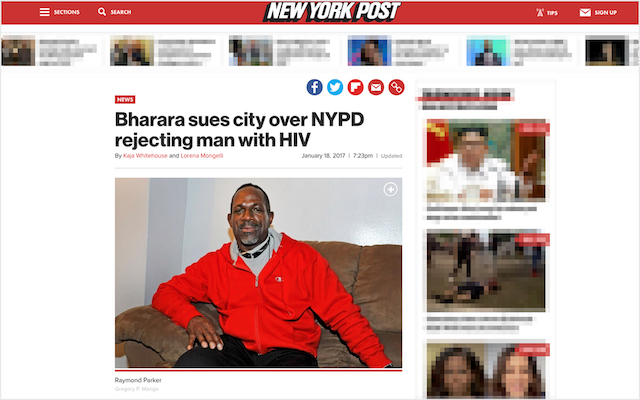Photographer Wins Lawsuit Against BuzzFeed, Sets Major DMCA Precedent
![]()
Last week, photographer Gregory Mango won an important lawsuit against online publication BuzzFeed; it’s important, not because of the payout involved, but because of the precedent set by the court, which ruled that BuzzFeed was liable for 3rd party infringement of his photo because they removed his copyright info from the image.
Three months later, a writer at BuzzFeed used this same photo without permission, removing Mango’s name and listing Parker’s law firm instead. The writer claims that Parker’s law firm “advised” him to use the photo, and so he pulled it from the New York Post article himself and credited the firm, rather than Mango. The law firm did not “recall” this, and said it was unlikely they would do such a thing.

Naturally, Mango sued BuzzFeed, but he sued them on two counts: first, for using his image without permission, and second, for removing his copyright management information (or CMI) in violation of the Digital Millennium Copyright Act (DMCA). It’s on this latter point that BuzzFeed fought Mango in court, appealing a previous ruling and claiming that they couldn’t be held liable “because there was no evidence that it knew its conduct would lead to future, third-party infringement.”
On August 13th, the United States Court of Appeals for the Second Circuit disagreed, upholding the lower court’s ruling and awarding Mango $3,750 in statutory damages for copyright infringement, $5,000 in statutory damages for violation of the DMCA, and “reasonable” attorney’s fees to the tune of $65,132.50 in fees and $1,810.03 in costs.
You can read the full opinion below:
This is likely to be a key ruling that is referenced in many copyright infringement cases moving forward. The court essentially struck down BuzzFeed‘s claim to ignorance of the potential ramifications of removing copyright info, writing that removing the identifying info was enough to hold the publication liable. “The statutory language requires constructive knowledge of future concealment, not future infringement,” wrote the judge.
Mickey Osterreicher, NPPA General Counsel, praised the ruling when we reached out for comment:
The NPPA is very pleased with the Second Circuit’s opinion regarding the CMI provisions of the DMCA in what it called a ‘relatively novel issue’ and ‘a question of first impression for this Court,’ which will greatly alleviate the burden of proof for photographers and require users to exercise greater due diligence when appropriating images. As we have often said, copyright is ‘complicated’ and takes a great deal of work to bring a claim, with attorney fees and costs often dwarfing the award as is the case here.
The implication—made explicit in a report by Photo Attorney–is that this ruling “paves the way for more successful claims” by photographers whose images have been used without their permission or appropriate credit. That ought to be hailed as great news, especially when attorney’s fees for a meager $8,750 in damages can run to over $65,000.
Image credits: Header illustration created by Mohamed Hassan, CC0